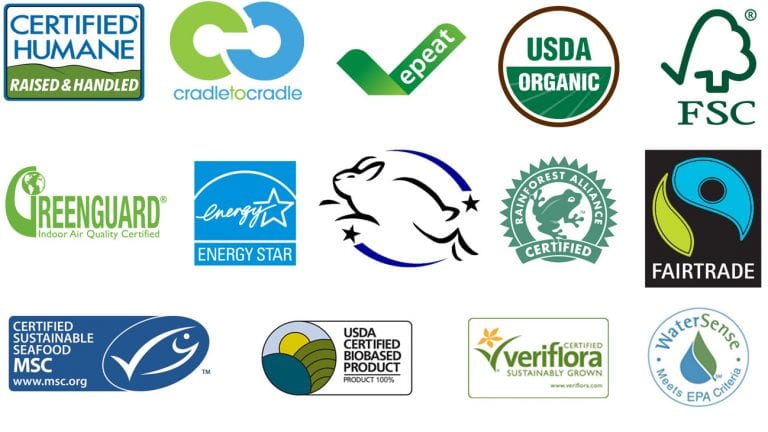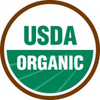
With hundreds of ecolabels and manufacturer claim statements in the U.S. alone, it’s easy for consumers to get confused by the barrage of “greenwash.”
So let’s get a handle on this…
Ecolabelling is a voluntary method of environmental performance certification and labeling used around the world. An ecolabel identifies products (or services) proven environmentally preferable overall, often in regards to how the product is procured, produced, or processed. The most credible labels are determined by impartial third party organizations that look for adhearance to environmental leadership criteria. Basically, these labels help highlight environmentally conscious, reputable products so consumers don’t have to do their own comparative analysis.
Some examples of ecolabels you’ll see at the Common Market include:
 Certified Humane Raised and Handled
Certified Humane Raised and Handled
Designed to certify that animals raised for dairy, lamb, poultry, and beef products are treated in a humane manner. Traceability ensures that that products come from the farms that were inspected. Under the program, growth hormones are prohibited and animals are raised on a diet without antibiotics. Antibiotics can be used in the treatment of sick animals. Access to clean and sufficient food and water; and a safe and healthful living environment is also required from birth through slaughter. Producers also must comply with environmental standards.
For more information, click here.
 Fair Trade
Fair Trade
Fairtrade is an ethical trade system that puts people first. Fairtrade offers farmers and workers in developing countries a better deal, and the opportunity to improve their lives and invest in their future. Fairtrade gives consumers the opportunity to help reduce poverty and instigate change through everyday shopping.
When a product carries the FAIRTRADE Certification Mark, it means the producers and traders have met Fairtrade Standards. Fairtrade Standards include social, environmental, and economic criteria, as well progress requirements and terms of trade. The Standards are designed to support the sustainable development of small-scale producers and agricultural workers in the poorest countries in the world.
For more information, click here.
 Non- GMO
Non- GMO
The non-GMO seal means that a product has been produced according to rigorous best practices for avoiding genetically modified organisms, including testing of risk ingredients. The Non-GMO Project is the only organization offering independent verification of testing and GMO controls for products in the U.S. and Canada.
For more information, click here.
 USDA Organic
USDA Organic
Organic meat, poultry, eggs, and dairy products come from animals that are given no antibiotics or growth hormones. Additionally, organic food is produced without using most conventional pesticides; fertilizers made with synthetic ingredients or sewage sludge; bioengineering; or ionizing radiation.
For more information, click here.
As they say, knowledge is power. Informed choices can lead to empowered buying practices!
Source: What Is Ecolabelling?, Global Ecolabelling Network, 2020, globalecolabelling.net/what-is-eco-labelling/.
Source: All Ecolabels in the United States, Ecolabel Index, 2020, http://www.ecolabelindex.com/ecolabels/?st=country,us.

This is very informative and helpful- thank you!
We are glad you enjoyed the post and found it informative!